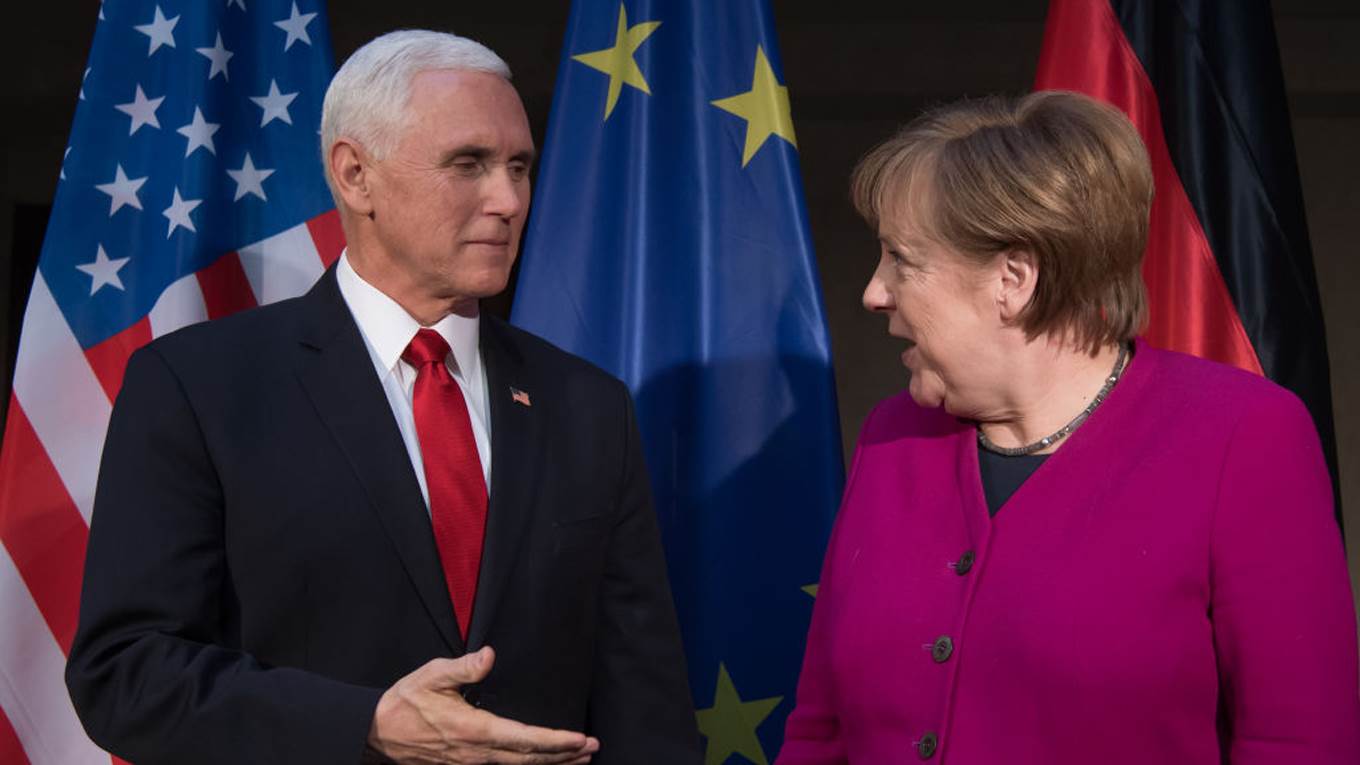An Alliance Undiminished, Merely Blemished Through A Dark Lens
"No one any longer believes that Trump cares about the views or interests of the allies."
"It's broken."
Senior German official
"Two years of Mr. Trump, and a majority of French and Germans now trust Russia and China more than [they do] the United States."
Karl Kaiser, analyst, German-American relations
"It's very odd to talk of American leadership of the alliance when it's Trump who has caused the crisis."
"The Trump administration is seen by many Europeans as chiefly responsible for the tensions and the weakening of the West."
Marietje Schaake, Dutch member, European Parliament
"[For Europeans, the divide went] to the heart of how we view international relations and our national interest."
"We're small and understandably need partnership both inside Europe and outside, with NATO."
"We want to believe it will be fine again later because we have no alternative."
Nathalie Tocci, senior adviser, European foreign policy chief, Federica Mogherini
 |
| The 55th Munich Security Conference, in Munich, Germany, 15 February 2019. [EPA-EFE/RONALD WITTEK] |
U.S. President Donald Trump is no gift as a politician much less a head of government, let alone president of the most powerful nation on Earth, but he has made some decisions that make sense if you're an American; placing America first. Europe may have favoured his predecessor but Barack Obama as President of the United States withdrew his country from the place it had in world affairs just as much as his successor has done, but for different reasons.
Both may have stated they have the larger interests of their country at heart, but President Obama apologized for U.S. strategic interests while President Trump will never fault his country for leading as he wills it to.
Perhaps European leaders were more comfortable with Mr. Obama because he was malleable, prepared to bend and to listen and to exercise his will in tandem with that of his allies, although he had no compunction over jettisoning some of his country's allies when the mood took him. He could, however, be relied upon, to listen to and accede to the 'progressive' agenda of the EU.
And so the world-class problem of how to deal with the Islamic Republic of Iran's aggressive support for terrorism could be overlooked for the fiction of restraining its nuclear program.
Federica Mogherini's supine, simpering submission to the Ayatollahs of the Iranian Revolution make her a somewhat more unsavoury character in many respects than is Donald Trump whose many and manifest faults lie in other directions altogether. His decision to withdraw from the agreement with Iran and re-institute sanctions had made life very difficult for the eager European investors in Iranian oil.
Europe, so long dependent on U.S. muscle and armour for protection against the rapacious re-entry of the Russian Federation to the world power structure doesn't much care for America First.
There is little likelihood, despite Donald Trump's incessant loose words emanating from a distracted mind accustomed to grabbing impressions and certainties from questionable sources, not the least of which is his level of understanding of world affairs to begin with, that the trans-Atlantic alliance is in any trouble.
The strain that has been occasioned by Mr. Trump's sloppy analysis and errant conclusions aided by his propensity to blurt half-baked impressions for public disclosure hasn't helped, but brighter minds should be able to interpret them more cogently than he can express them.
The presence of over 40 American lawmakers at the annual security conference in Munich to assuage fears should have succeeded in doing so, even if their expressions were mostly those of faith from Democrats that the Republican administration of President Trump would be short-lived. This is one time that U.S. politics intersects neatly with European expectations in a commonality of detestation for one man and a collective fear of his unbridled, untutored impulses.

Vice-President Mike Pence, speaking at the event, following German Chancellor Angela Merkel, no champion of the U.S. president, predictably made no positive impression on the gathering with his exhortations to withdraw from the Iran nuclear deal. He's right, they're wrong, in viewing that agreement as tied to their security; it may be, but negatively.
Mr. Pence's point of view, self-interested as it is, was to praise his president and credit him with the restoration of American leadership which should perhaps have impressed his audience but failed to.
In this conference the two elephants in the room were China and Russia and their singular ambitions. Ambiguity in the Western alliance, claimed Jan Techau, director of the Europe Program at the German Marshall Fund in Berlin envisions a strategic vulnerability to the ambitions of Russia and China attuned to Europe's concern that a gap in reliance on American intervention has been created. "When that protection goes, then this strategic space is up for grabs", he claimed moodily.
"In the post-Trump era, there is no return to the pre-Trump era. The status quo was Europe's security is guaranteed by the United States."
"That won't happen again."
Norbert Ropttgen, chairman, German Parliament, foreign relations committee
Labels: Alliance, China, Concerns, European Union, Russia, United States, Vulnerabilities

<< Home